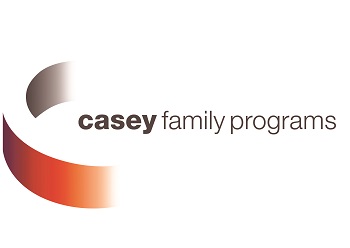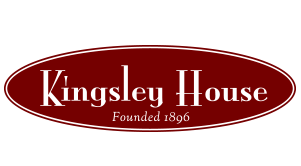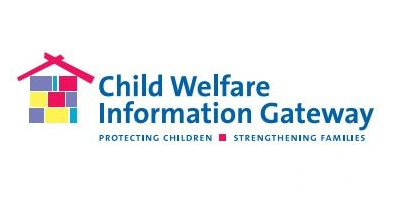CWLA 2021 VIRTUAL CONFERENCE
LESSONS LEARNED FROM 2020:
REACHING NEW HEIGHTS FOR CHILDREN AND FAMILIES
May 4 – 6, 2021
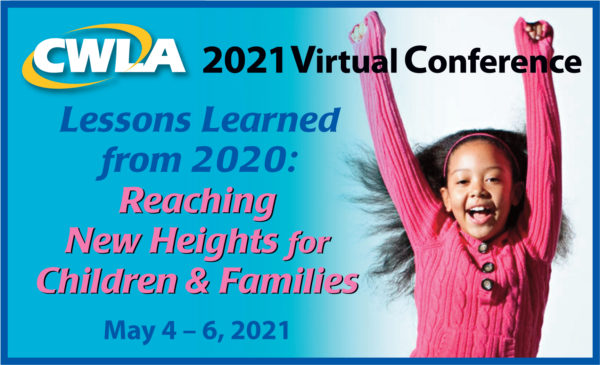
Overview
2020 was an unprecedented year. The continuing COVID-19 pandemic has taken a toll on children and families who are the most vulnerable—and on the organizations that serve them. But many child- and family-serving agencies, workers, caregivers, and others have stepped up to the challenges presented and created new and innovative ways to work through them.
What did we learn—both the good and the bad—about our ability to serve children and families? How can we build on and leverage this learning? What successful practices and programs should continue in 2021? Together, we need to strive to reach new heights for all children while recognizing that although all children and families were negatively impacted in 2020, the pandemic has taken an extreme toll on children and families who are the most vulnerable.
Join us online May 4-6, 2021 for the CWLA 2021 Virtual Conference: Lessons Learned from 2020: Reaching New Heights for Children and Families. We look forward to exploring the numerous service enhancements and innovations that have been developed by child welfare and other allied fields in response to COVID-19, discussing the successful strategies and approaches that can be integrated into our service work moving forward, and identifying the practice, policy, and funding changes that may be required to help organizations implement and adapt.
Register today to reserve your seat! Attendees will have access to recordings of the virtual conference presentations.
Attendees also are invited to join us for Virtual Hill Day 2021 on Wednesday, May 12. Meet with your Members of Congress to promote child welfare priorities that help us reach new heights for children and families. Please see the Virtual Hill Day information below for full details.
Also, CWLA is pleased to present a webinar series featuring the essay authors of our recent publication, COVID-19 and Child Welfare: Challenges and Responses. Please see the webinar series information below for full details.
Contact us at CWLA2021@cwla.org for assistance.
Check back often for new event details!
Schedule
Tuesday, May 4, 2021
12:00 pm – 1:15 pm Eastern Time
Opening Plenary
1:45 pm – 3:10 pm Eastern Time
Panel Session
3:30 pm – 5:10 pm Eastern Time
Panel Session
Wednesday, May 5, 2021
12:00 pm – 1:40 pm Eastern Time
Panel Session
2:00 pm – 3:40 pm Eastern Time
Panel Session
4:00 pm – 5:40 pm Eastern Time
Panel Session
Thursday, May 6, 2021
12:00 pm – 1:40 pm Eastern Time
Panel Session
2:00 pm – 3:40 pm Eastern Time
Panel Session
4:00 pm – 5:00 pm Eastern Time
Closing Plenary
Speakers
OPENING PLENARY SPEAKERS
Aysha E. Schomburg, J.D., is the Associate Commissioner in the Children’s Bureau in the Administration on Children, Youth and Families, located within the Administration for Children and Families at the U.S. Department of Health and Human Services. As Associate Commissioner she heads the Children’s Bureau.
Schomburg joined the Biden Administration in March 2021 after serving as the Senior Administrator for Program Oversight for New York City’s Administration for Children’s Services (ACS). There she worked collaboratively with agency leaders to develop and implement plans for the operational infrastructure of ACS, while also developing and coordinating comprehensive organizational capacity-building strategies across programs. In addition, during the COVID-19 public health crisis, she worked closely with New York City’s Department of Education and Department of Homeless Services to create and coordinate guidance for frontline staff. She also worked with the New York City mayor’s office to coordinate a platform for listening to nonprofits and social services agencies regarding COVID-19 challenges and proposed solutions. She provided counsel to New York City’s Office of Equity Strategies regarding implementation of the ACS race equity plan and has provided recommendations to the agency on how to tackle inequities and racism in child welfare. In 2019, she was awarded the ACS Distinguished Service Award for “Assisting Children Separated from their Families at the Border.”
Prior to joining ACS, Schomburg held a number of key leadership positions with the New York City Council, including Assistant Deputy Director. Under this title, she managed legislative activities of 13 committees in the human services division and provided legal counsel to the speaker and council members. Prior to that she served as Senior Counsel and Counsel to the Committee on Education.

Aysha E. Schomburg, J.D.
Associate Commissioner, Children’s Bureau

Marva Hammons, MSW
Executive Vice President of Child and Family Services, Casey Family Programs
Marva Hammons, MSW is the Executive Vice President of Child and Family Services. She joined Casey Family Programs in 2007. She oversees the foundation’s direct practice work to improve the lives of vulnerable children and their families. Hammons is responsible for the foundation’s nine field offices in Arizona, California, Idaho, Texas and Washington, in addition to its Indian Child Welfare office in Colorado. Hammons has more than 30 years of experience working with and advocating for children and families. Before Casey Family Programs, Hammons was executive director of Colorado’s Department of Human Services; served as executive director of Michigan’s Family Independence Agency; was New York City’s Human Resources Administration Commissioner; and manager of Denver Colorado’s Department of Human Services. Hammons holds a master’s degree in social work from the University of Utah. She has taught at the University of Denver’s Graduate School of Social Work and the Metropolitan State College in Denver. She serves on the board of trustees of Hunt Alternatives.
Martin (Marty) Mcomber is Managing Director of Communications. He joined Casey Family Programs in 2008. He oversees the foundation’s strategic communications efforts and leads a team of writers, designers and producers who work across digital, print and multimedia platforms, as well as live events. Prior to joining Casey Family Programs, he was the senior communications advisor to Seattle Mayor Greg Nickels for two terms. Previously, he worked for more than a decade as a journalist in Seattle, Boston and Los Angeles. Marty holds a master’s degree in journalism from the University of Southern California.

Marty Mcomber
Managing Director of Communications, Casey Family Programs
Panels
TUESDAY, MAY 4, 2021
1:45 pm – 3:10 pm Eastern Time
Panel Session
Advancing a National Policy Agenda to Strengthen Child and Family Well-Being: The 2021 CWLA Agenda
In this panel session, presenters will discuss some of the key issues that are helping to shape this year’s CWLA legislative priorities. Number one is the challenge of child poverty, its impact on families, and how we can address it. Presenters will also focus on a key priority for families and child development – the need for stronger early childhood education and child care services. Finally, presenters will focus on racial inequality and the ways that the child welfare system has contributed to that inequality as well as a few first steps Congress can take this year to roll-back past failures and actions.
Presenters: Lawrence Berger, Vilas Distinguished Achievement Professor, School of Social Work and Institute for Research on Poverty, University of Wisconsin–Madison; Erin Robinson, Campaign Manager, Early Childhood Policy, Center for American Progress, Washington, DC; Cheri Williams, Senior Vice President of Domestic Programs, Bethany Christian Services, Grand Rapids, MI; Bahney Dedolph, Deputy Director, Arizona Council of Human Service Providers, Phoenix, AZ; and Christine James-Brown, President and CEO, CWLA, Washington, DC

Lawrence Berger

Erin Robinson

Cheri Williams

Bahney Dedolph

Christine James-Brown
TUESDAY, MAY 4, 2021
3:30 pm – 5:10 pm Eastern Time
Panel Session
Supporting and Enhancing Child Welfare Essential Worker Performance
In this panel session, presenters will share strategies used to support employees during the pandemic, including effective and open communication, maintaining the continuity of work and teamwork, recognizing secondary traumatic stress, and utilizing self-care approaches.
They also will discuss technological tools that have revolutionized child welfare case management for workers, supervisors, and families, highlighting how leveraging mobile solutions can help maintain continuity of services, produce high-quality child welfare services, and increase job satisfaction in the workforce.
Learning approaches utilized to develop and enhance skills and best practices for workers and staff providing Virtual Family Time will be explored. Strategies include pre-visit planning discussions and post-visit debriefers to strengthen parent engagement and guidance on how to build a foundation for collaboration between parents and caregivers. These enhancements can improve the quality of Virtual Family Time, which often correlates with faster and more stable reunification.
Presenters: Nancy Carre-Lee, Deputy Director of Child Protection and Permanency Operations, New Jersey Department of Children and Families, Trenton, NJ; Sonia Greene, PhD, MIS, MBA, Family Services IT Portfolio Technical Instructional Administrator Supervisor, Virginia Department of Social Services, Richmond, VA; Michael W. Wagner, LMSW, Senior Director of Permanency, Children’s Aid, Bronx, NY; and Emiko A. Tajima, Executive Director and Associate Professor, Partners for Our Children, University of Washington School of Social Work, Seattle, WA
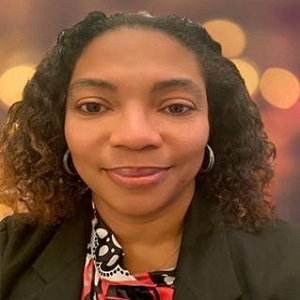
Nancy Carre-Lee

Sonia Greene

Michael Wagner

Emiko Tajima
WEDNESDAY, MAY 5, 2021
12:00 pm – 1:40 pm Eastern Time
Panel Session
Utilizing Innovative Resources and Tools to Keep Everyone Engaged, Safe, and Informed
Transparent, comprehensive approaches have been developed to communicate with staff, clients, and the broader community during the pandemic. These inclusive efforts to both receive and provide information have been successful in engaging stakeholders and enhancing agencies’ service work in countless ways. They have been integrated into agencies’ daily activities.
Omni Inventive Care’s COVID-19 Playbook was created to support and provide policies for employees to adhere to during the pandemic to mitigate client and staff infection. Ten protocols were created specifically regarding COVID-19, and the Playbook continues to be an ongoing effort. As recommendations change according to the Centers for Disease Control and Prevention (CDC), the Playbook regularly is updated to stay one step ahead of the next uptick in cases. Webinars and competency quizzes, researched through the CDC, were developed for all staff to complete. Making sure that staff implement and understand the protocols was a priority.
Kingsley House provides workforce development to move families toward economic security through education and training, which in turn can lead to child welfare careers that pay livable wages and supply benefits. Kingsley House’s collaborative approach in these efforts engages community partners committed to helping families thrive. As the COVID-19 pandemic continues to highlight the racial inequities and disparities that persist in so many communities, focus group session have been held by the community collaborative to develop a robust advocacy agenda focused on racial equity in the areas of health, education, and policy, among others. The community partners understand that collaboration is critical and necessary in developing long-term solutions.
Service innovations have been developed to adapt community-based case management and reunification services, including in-home safety assessments, for children who are unaccompanied and their caregivers. New protocols utilize the expertise of health and safety experts to provide background screenings and supportive education to caregivers. The implementation of COVID-19-conscious practices was successful with the support of staff who engaged in collaborative activities to hear every voice and were flexible with their client engagement approaches. Presenters will discuss these innovations.
Presenters: Ken Mysogland, Bureau Chief of External Affairs, Connecticut Department of Children and Families, Hartford, CT; Arnel Cosey, Senior Director of Strategic Initiatives and Community Services, Kingsley House, New Orleans, LA; Dena Siedenburg, Director of Nursing, Omni Inventive Care, Omaha, NE; and Virginia Fitchett, Associate Director for Family Reunification, Lutheran Immigration and Refugee Service, Baltimore, MD

Ken Mysogland
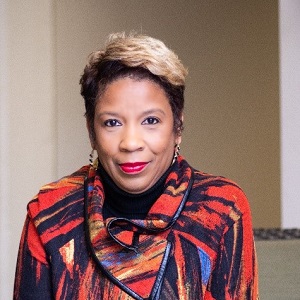
Arnel Cosey

Dena Siedenburg

Virginia Fitchett
WEDNESDAY, MAY 5, 2021
2:00 pm – 3:40 pm Eastern Time
Panel Session
Transitioning to Virtual Strategies to Ensure Continued Service Delivery and Supports for Special Populations
This panel session will explore various technological tools that have been shown to be effective in supporting children and families, as well as the barriers encountered in working with Native populations.
Panelists will discuss how the distribution of laptop computers and mobile phones to children in Tribal foster care allowed parents and children to engage in virtual visits. Technological tools also enabled court attendance, schooling, and parenting education – both one-on-one and group-facilitated training – but issues of accessibility to the internet in rural areas, as well as training to understand and use the virtual technology, presented challenges.
International Social Service-USA developed a set of guidance materials for the use of remote assessments in permanency planning for children in foster care – particularly those with family outside of the United States. The guidelines and emerging best practices are in five main areas of remote assessments, including: (1) how to determine when virtual assessments are feasible; (2) developing protocols for agencies to protect staff and clients; (3) conducting virtual assessments with appropriate modifications; (4) conducting safe, in-person follow ups; and (5) completing comprehensive reports. These guidelines can reduce inequity in access to family reunification for children with international connections.
This past year, Children and Family Futures shifted their work with families involved in child welfare and affected by substance use disorders to a virtual environment. Panelists will discuss the research supporting family-centered case plans; provide concrete ways to actively involve the parent, child, and family support system in both case planning and monitoring in a virtual environment; and explain which elements should be included in the family-centered case plan that reflects the strengths, challenges, and needs of all family members.
The Father Center of New Jersey adapted service delivery focused on innovative programs and efforts to support men in meeting their responsibilities of fatherhood by using digital check-in kiosks, issuing smartphones to all direct support staff, and converting the agency’s main phone line to a “hotline.” In-person anger management classes were successfully converted to virtual learning classes in a few short months. Service innovations of virtual case management and a hybridized approach have proven successful, as the agency has surpassed its prior year performance and exceeded annual performance goals.
Presenters: Carter W. Patterson, Program Director, The Father Center of New Jersey, Trenton, NJ; Angela Connor, Director of Foster Care & Adoptions, Choctaw Nation of Oklahoma and Board Member, CWLA, Stonewall, OK; Elaine Weisman, Program and Training Manager, International Social Service-USA, Baltimore, MD; and Kirstin Frescoln, Senior Program Associate, Children and Family Futures, Lake Forest, CA
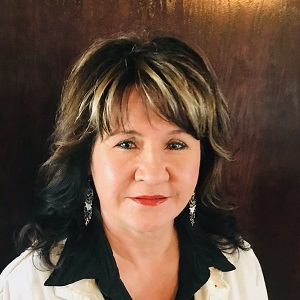
Angela Connor
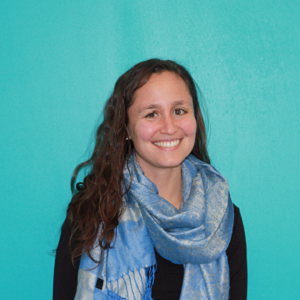
Elaine Weisman

Carter Patterson
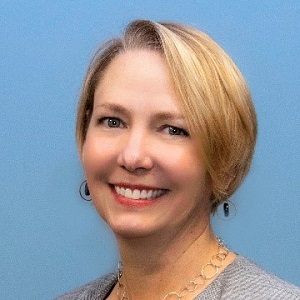
Kirstin Frescoln
WEDNESDAY, MAY 5, 2021
4:00 pm – 5:40 pm Eastern Time
Panel Session
Transitioning to Virtual Strategies to Ensure Continued Service Delivery and Supports for Special Service Areas
In this session, panelists will discuss an older child adoption program that the Barker Adoption Foundation is utilizing to break interjurisdictional barriers and provide opportunities for permanency when local resources in the child’s state are limited or not available. The agency has developed 26 state partnerships as their virtual training platforms were made available for caseworkers nationwide to learn how to execute interstate placements for older children who are the most vulnerable. Families also are encouraged to attend virtual workshops to learn more about the process to provide permanency for children in different geographic locations.
Panelists also will explore modification of agency services for their kinship care program to protect the health and safety of their families. The program immediately conducted a needs assessment survey and identified a lack of technology as a primary issue. Working with local community partners, they were able to provide laptops, tablets, and internet/WiFi so children and caregivers could access educational resources and support services. The agency staff supported access to home schooling and food services and modified their psycho education classes for caregivers to be presented virtually. They also noted a silver lining: With virtual presentations, they now are able to provide services to more kinship families across the state, including in rural areas.
Panelists will discuss the development of a service innovation to provide continuing education and post-adoption support to families virtually. Staff participated in adoption competency training and identified it as an opportunity for replication. The virtual psychoeducational training for families who are post-adoption is followed by four weeks of support groups in which families can share their experiences with each other. The agency serves families throughout the United States. The use of virtual technology allowed the agency to be more inclusive and invite all their post-adoptive families to participate in training. It provided equal access to those who live in all areas of the country.
Panelists will highlight the adjustment of USCRI’s home study and post-release services for children who are unaccompanied. The organization’s services were shifted to be almost completely remote, with home visits being conducted via video calls. They also created more digital resources and conducted increased outreach and advocacy with service providers and school districts. The agency was able to identify improved outcomes related to school enrollment and legal representation for the children in their care who were unaccompanied. They also continued to ensure that these children were released to appropriate placements using a blend of in-person and remote home studies, helping decrease their length of stay in federal custody.
Presenters: Saara McEachnie, Director of Domestic Adoption Programs, Barker Adoption Foundation, Bethesda, MD; Bacall Hincks, Clinical Program Director, Dahlia’s Hope, Salt Lake City, UT; Julie Bowman, Social Services Supervisor, Fairfax County Department of Family Services, Fairfax, VA; and Matt Haygood, Director of Children’s Services, U.S. Committee for Refugees and Immigrants (USCRI), Arlington, VA

Saara McEachnie
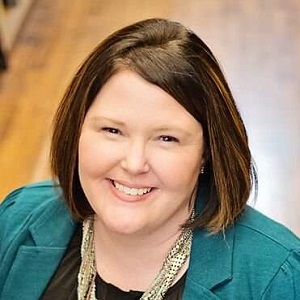
Julie Bowman

Matt Haygood

Bacall Hincks,
THURSDAY, MAY 6, 2021
12:00 pm – 1:40 pm Eastern Time
Panel Session
Transitioning to Virtual Strategies to Ensure Continued Service Delivery and Supports – Behavioral Health
In this panel session, presenters will discuss a treatment foster care program’s development of a virtual social group to support the adolescent youth in care. The purpose of the group was focused on addressing the developmental needs of the youth and counteracting the struggles and challenges faced by this population because of the pandemic. Many were dealing with isolation, anxiety, and heightened depression during what is typically a highly social developmental stage. The group serves as a way for adolescent members to safely connect and socialize and provides a source of consistency and stability for youth during uncertain times.
The panelists also will discuss providing comprehensive and effective teletherapy that takes advantage of the benefits of technology. Virtual therapy playrooms are one way to actively and effectively connect with children who are challenging to engage remotely. These virtual playrooms can be individualized for the child so that developmental needs as well as cultural and racial identities can be addressed. Virtual playrooms specifically designed to meet the complex needs of children in foster care will serve as a much-needed tool to assist this particularly high-risk and all too often overlooked subset of the population.
An expanded and broadened reach of highly impactful mental health education and suicide prevention service for youth will be discussed. The NAN Project shifted to virtual by developing workshops and peer/mentor stories to share an individual’s struggle with mental illness and how they found a path to recovery by accessing supports and learning coping strategies. They also created professional development trainings for teachers and parents on self-care, building resiliency, and how to better support youths’ mental health.
Virtual therapy can be provided to children and their families through use of creativity, play, and movement. The panelists will discuss these strategies, which can be used to address various areas of family needs based on resource availability, cultural background, and other preferred methods of interaction with therapist and one another. Establishing flexibility with regard to communication and identifying new strategies that incorporate sensory experiences can successfully support and engage children and parents to achieve family goals—and help maintain or improve use of coping mechanisms needed to manage challenges associated with the ongoing public health crisis.
Presenters: Latoya Lowe, Social Worker, The Martin Pollak Project, Inc., Baltimore, MD; Amy Morgenstern, Ph.D., Director of Psychology, JCCA, Brooklyn, NY; Jake Cavanaugh, Executive Director/Co-Founder, The NAN Project, Lexington, MA; and Carolina Belmares Ortega, Therapist, All Faiths Children’s Advocacy Center, Albuquerque, NM
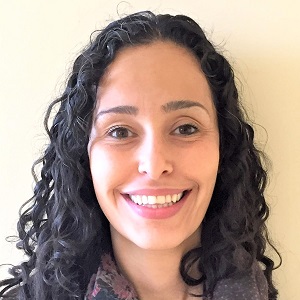
Amy Morgenstern

Jake Cavanaugh

Carolina Belmares Ortega

Latoya Lowe
THURSDAY, MAY 6, 2021
2:00 pm – 3:40 pm Eastern Time
Panel Session
Transitioning to Virtual Strategies to Ensure Continued Service Delivery and Supports – Legal
The Infant-Toddler Court Program (ITCP), a national initiative that addresses gaps in systems coordination, has transitioned to virtual platforms for hearings, family team meetings, mental health services, dyadic services, and parent-child contact. Multiple strategies were developed with community support for technology access for families and resource caregivers. Data has been collected from ten evaluation sites across several states to track the progress of each family. Additional virtual supports were launched, including virtual visits, learning collaboratives, and support from content experts in the areas of infant mental health and substance use disorders.
A local child advocacy center was charged with responding to all reports of child sexual abuse. The agency developed creative and effective alternatives for working with children and families, using a combination of in-person and virtual approaches. Given the high volume of children seen daily, the agency had to adjust their intake, forensic interview, family advocacy, medical exams, and therapeutic services while still coordinating the highly collaborative nature of the multidisciplinary program model. The agency is co-located with the police, the public child welfare agency, and medical professionals from a pediatric hospital. Panelists will discuss this collaboration.
The pandemic has made widespread impacts on the child welfare legal system – ranging from how attorneys interact with clients, to remote hearings, to increased use of stipulated agreements among parties. Dependency courts had to maintain court schedules and transition to remote technology to prevent widespread delays in child welfare cases. Panelists will discuss a survey that evaluated the impact of this transition. The resulting data shows some very interesting trends across the country on topics such as visitation, termination of parent rights timelines, and remote hearings. Informed decisions about how to use remote technology in legal proceedings in the future should focus on how to ensure that children and parents’ rights are best protected.
Presenters: Cecilia Casanueva, Senior Public Health Researcher, RTI International, Cary, NC; Paul DiLorenzo, ACSW, MLSP, Interim Executive Director, Philadelphia Children’s Alliance, Philadelphia, PA; Prudence Beidler Carr, Director, American Bar Association (ABA) Center on Children and the Law, Washington, DC; and Rhonda Serrano, Senior Attorney, ABA Center on Children and the Law, Washington, DC

Cecilia Casanueva

Paul DiLorenzo

Rhonda Serrano
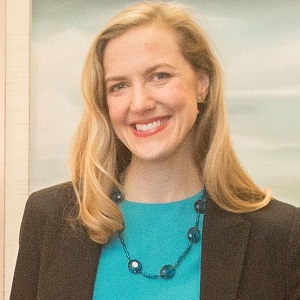
Prudence Beidler Carr
Virtual Hill Day

GO TO CAPITOL HILL AND MAKE YOUR VOICE HEARD!
Join us for Hill Day 2021 on Wednesday, May 12. This year’s virtual activities may make it easier to talk to your Senators, Representatives, and key Capitol Hill staff. One of the most important things you can do when you participate in a CWLA national conference is to promote child welfare priorities on Capitol Hill!
Conference participants and CWLA members will have an opportunity to take the information and learning from our pre-conference “open mic” planning sessions in April to be prepared for your Virtual Hill Day meetings on May 12. We will provide you with CWLA’s Legislative Agenda, hot topics briefs on our three key priorities, and additional handouts. The “open mic” sessions will provide you with an overview of the Legislative Agenda and discussion items for your meetings with members of Congress.
CWLA staff will help you set-up the virtual meetings so that you can Go to Capitol Hill and meet your Senators and House Members on Wednesday, May 12 from 10:00 am to 12:00 pm (ET), and 1:00 pm to 3:00 pm (ET). At 9:00 am (ET) and 12:00 pm (ET) you can join CWLA staff online as they share information on the Legislative Agenda as well as tips and talking points for your virtual Capitol Hill meetings.
There are many issues that have engaged, and even riled, CWLA members, partners, and colleagues over the past year: child allowance, budget debates, and COVID-19 response. This is a critical time to share your concerns with the people who can make a difference—your elected representatives. 2021 allows us a genuine opportunity to advance the three key parts of CWLA’s Legislative Agenda. The Child Tax Credit (CTC) can help lift millions of children out of poverty and cut child poverty in half. Expanding quality childcare for families across America and addressing racial inequality both need congressional attention. Go to Capitol Hill and Make Your Voice Heard!
Meeting with your members of Congress or their key staff is incredibly important—especially in times like these with the country trying to recover from the pandemic, the urgent need to address child poverty and inequality, and the chance to meet a new Congress and new Administration. Even if you do not get a chance to meet with members of Congress themselves, their staff members are their closest advisors and can heavily influence decisions. Value every moment with them!
Complete your conference registration and plan to join us for Virtual Hill Day 2021 on May 12. Your voice is powerful when you share it!
Webinar Series
CWLA is pleased to present a webinar series featuring the essay authors of our recent publication, COVID-19 and Child Welfare: Challenges and Responses. The presenters include human services professionals, academics, legal experts, child welfare practitioners, and others. The essays and webinar sessions share the challenges, significant developments, and innovations resulting from the impact of the COVID-19 pandemic on the child welfare field—including how communities are exposing and addressing difficulties, reawakening a sense of connectedness, and taking the steps needed to advance the goals of the CWLA National Blueprint for Excellence in Child Welfare.
Special thanks to Casey Family Programs for their support of the webinar series. Recorded sessions will be available in April 2021. The essay collection, COVID-19 and Child Welfare: Challenges and Responses, is available for purchase in both print and digital.
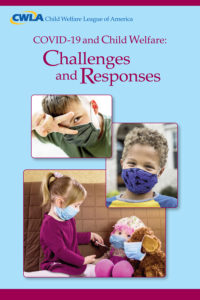
COVID-19 AND CHILD WELFARE: CHALLENGES AND RESPONSES – WORKING DIFFERENTLY WITH NEW PARTNERS
Features the following essays and authors.
Addressing the Digital Divide for Youth in Foster Care
COVID-19’s first impact on youth in foster care came on March 11, 2020. The Los Rios Community College District—which serves the greater Sacramento, California area—sounded the alarm with an SOS email: School was closing. Many students who were in foster care did not have computers or access to the Internet. iFoster, a nonprofit based in Truckee, California, set a scalable plan in place to ensure that every eligible youth currently or formerly in care, between the ages of 5 and 26, would have access to the technology they needed. We have proven with the following combination that bridging the digital divide for youth in foster care is a solvable problem— and one that can be replicated as distance learning continues this fall and into the foreseeable future: (1) the right technology solution(s); (2) accurately identifying eligible recipients; (3) implementing an efficient distribution process; and (4) accessing funds.
Presenter: Serita Cox, Co-Founder & CEO, iFoster
Collaboration During COVID-19: The Role of Faith Communities and Technology
This essay examines the impact of the COVID-19 pandemic on child welfare agencies’ ability to serve children and families. It proposes that the collaboration between child-serving agencies and local churches is essential to providing effective care for children and families who are vulnerable. To spur this collaboration between stakeholders, this article issues simultaneous calls to action: first, for the child welfare system, from policy-makers to caseworkers, to view and intentionally include the local faith community as a critical partner in the work to protect and serve children and families; and second, for the local faith community, from pastors and ministry leaders to lay people, to proactively come alongside child welfare agencies and social workers to serve those in need. This essay highlights CarePortal, a technology platform that connects the needs of children and families to people who want to help, as an effective opportunity for collaboration between the child welfare system and faith community.
Presenters: Jacob G. Holland, Development Manager, Global Orphan Project; and Audrey Deckinga, LMSW, Assistant Commissioner, Texas Department of Family and Protective Services (retired)
***************
COVID-19 AND CHILD WELFARE: CHALLENGES AND RESPONSES – SERVICES AND SUPPORTS – SPECIAL POPULATIONS
Features the following essays and authors.
The Impact of COVID-19 on Latinx Immigrant Children & Families: A Call to Action
This essay examines how the coronavirus (COVID-19) pandemic has exposed systemic inequities in the U.S. health care system and economy, disproportionately impacting Latinx immigrant children and families. Qualitative findings from interviews conducted with Los Angeles-based social service providers (n = 25) show that practitioners adapted to new demands during shelter-in-place orders by providing remote therapies and bilingual information to dispel myths and fears regarding COVID-19. Collaborations were formed with immigrant advocacy-based agencies to mobilize online services such as ESL classes, legal clinics, and trainings to empower immigrant communities. A call to action is issued to address macro- and mezzo-level systemic weaknesses, and to preserve and build on the strengths of Latinx immigrant families.
Presenter: Kristina Lovato, PhD, MSW, Assistant Professor, School of Social Work, California State University-Long Beach
Creativity Across Borders: Supporting Transnational Families during a Pandemic
A child’s right to a loving family and connection to their culture, ethnicity, race, and language is a cornerstone of CWLA’s National Blueprint for Excellence in Child Welfare. For thousands of children, these connections span international borders. Modifying assessment tools, empowering local professionals, and reimagining service delivery models can increase our ability to connect families during the COVID-19 pandemic and beyond—particularly in communities that have been hit the hardest. Supporting families reunify in some settings has required additional creativity. Since 2018, International Social Service-USA has been working with partners in Guatemala and Honduras to support immigrant children returning to family care after a voluntary return to home country or deportation.
Presenter: Elaine Weisman, LMSW/MPH, Program and Training Manager, International Social Service-USA
***************
COVID-19 AND CHILD WELFARE: CHALLENGES AND RESPONSES – ORGANIZATIONAL/ OPERATIONAL CHANGES
Features the following essays and authors.
Communicating During A Crisis: Making Challenges an Opportunity
The protective factors we advocate for in families, including social connections, are the same protective factors that will keep child welfare organizations surviving and thriving despite a global pandemic. Maintaining or enhancing robust communications and advocacy efforts ensures that organizations are communicating and educating policy-makers and other decision-makers about critical services being provided—and the impacts an organization is having despite the COVID-19 crisis.
Presenters: Megan Branham, LMSW, Vice President of Policy and Advocacy Programs, North Public Relations; and Allison North Jones, Founder and CEO, North Public Relations
Shifting to a Remote Children and Family Services Workforce: The Illinois Department of Children and Family Services
When the COVID-19 pandemic struck and it became clear that one of the best options to help curb and prevent the spread of the virus was social distancing, the Illinois Department of Children and Family Services moved quickly to ensure that its child abuse hotline remained staffed 24 hours a day. This meant securing equipment and training employees—and had the added benefit of improving morale and reducing the number of callbacks
Presenter: Marc D. Smith, Acting Director, Illinois Department of Children and Family Services
Videoconferencing in Child Welfare: An Appreciative Inquiry
Videoconferencing has positively affected connections between parents and the child welfare system— though with notable limitations. Some counties have reported increased parent engagement and increased efficiencies for case and court workers. Groups that have traditionally been marginalized may particularly experience benefits, with less disruptive time schedules doing much to alleviate intimidation and burden. Where appropriate, to the exclusion of investigations and family visits, we urge child welfare practitioners and researchers to embed videoconferencing in practice models post-COVID.
Presenters: Angela Pittman-Vanderweide, CEO, NeuroAgile Leadership & Workforce Consulting; Robin O’Brien, Senior Advisor, Public Consulting Group; and Erica Vilay, Consultant, Public Consulting Group
***************
COVID-19 AND CHILD WELFARE: CHALLENGES AND RESPONSES – THE LINK BETWEEN CHILD WELFARE AND POVERTY
Features the following essays and authors.
Child Poverty and the Pandemic
The COVID-19 pandemic has intensified the hardships of children living in poverty, with school closings and reduced access to food and housing hitting these children the hardest. This essay describes these and other inequities in pandemic-related harms to children in families that are the most vulnerable. The author points out that solutions to the scourge of child poverty have been available for some time and urges readers to become active in countering the beliefs, attitudes, and policies that perpetuate aberrantly high rates of child poverty in the world’s richest nation.
Presenter: Lenette Azzi-Lessing, Clinical Professor of Social Work, Boston University
COVID-19’s Economic Impact: Threatening a Decade of Progress in U.S. Food Security
As the United States struggles to mitigate and contain the spread of the novel coronavirus disease (COVID-19), the nation has faced shocks to household-level income and employment not seen since the Great Depression. As key determinants of food security, these secondary effects of the pandemic challenge working families’ ability to access adequate nutritious food. Public policy measures, including the roll out of Pandemic EBT and adaptations to SNAP and school-based meals, aim to alleviate skyrocketing food insecurity; however, the unsustainable strain on charitable food organizations to meet demand for private assistance suggests that public benefits are insufficient to meet this need.
Presenters: Emma Langley, MPH Candidate, CUNY Graduate School of Public Health and Health Policy; and Shannon Strother, Vice President for Programs, Catholic Charities of the Archdiocese of Galveston-Houston
***************
COVID-19 AND CHILD WELFARE: CHALLENGES AND RESPONSES – EFFECTIVE USE OF VIRTUAL/REMOTE SERVICES
Features the following essays and authors.
Exploring the Potential Benefits of Virtual Child Welfare Services
This essay explores the implementation of remote services for families awaiting reunification with children placed in alternate care settings. We draw on perspectives from parents and stakeholders involved in family reunification using remote services, gathered through a rapid ethnographic assessment (REA) we conducted between March and June 2020. Based on our findings, we suggest that a hybrid model of service delivery may harness the benefits of virtual innovations in service access while also ensuring protection of parental rights and child safety. We also call for more research on the effects of remote service delivery on vulnerable families is needed.
Presenters: Anna Davidson Abella, Research Assistant Professor, University of South Florida; Flandra Ismajli, Social and Behavioral Researcher, University of South Florida; and Linda M. Callejas, Anthropologist, University of South Florida
The National Family Preservation Network: Analyzing Remote Child Welfare Services During COVID-19
The COVID-19 pandemic has had a significant impact on family-serving agencies and their clients. The National Family Preservation Network sought to assemble guidance for service delivery by collecting information about how agencies adapted during the pandemic. Fortunately, remote services do not seem to adversely affect the number of families served or their outcomes. Agencies have been innovative in developing strategies for serving families remotely and technology has played a big part in this. The lessons learned from this experience can be applied to other scenarios when remote services may be necessary or preferable.
Presenter: Michelle Reines, Executive Director, National Family Preservation Network
The Challenge of Stay-at-Home Orders for Children, Youth, and Families
COVID-19 will forever change our reality and produce many expected and unexpected consequences. In the interest of public health, our response has necessitated the need for widespread restrictions and stay-at-home orders. Stay-at-home orders required us to modify child welfare practices and, often, can add additional stressors related to our capacity to function and meet the demands of daily living. Social services that typically support and respond to family violence, substance abuse, and mental health concerns are dramatically restricted during the pandemic, resulting in decreased access, limited reporting, and isolation of those in need of support services. Families isolated at home are likely experiencing additional stress, increases in intimate partner violence (IPV), substance abuse, suicide, and child abuse. This article explores the unseen consequences of individual and family struggles that happen behind closed doors and provides recommendations for future policies and practices.
Presenter: Rick Azzaro, Executive Director, Voce
Sponsor & Vendor Opportunities
Sponsor & Vendor Opportunities
Make a lasting impression on child and family experts and advocates. Become a CWLA Conference Sponsor or Vendor. There is an opportunity for every organization and budget! Contact us at CWLA2021@cwla.org for more information or to discuss which sponsor and vendor opportunities work best for your organization.
ALL SPONSORS AND VENDORS RECEIVE:
- Company logo and website link on conference webpage
- Recognition and website link in conference e-communications
- Company listing on conference mobile event app
Additional Benefits for Sponsor & Vendor Levels
FRIENDS OF CWLA – $1,000+
For general underwriting expenses needed to host the conference. A great option for CWLA members, supporters, and vendors!
BRONZE – $5,000
- Premium sponsor/vendor listing on event app (includes logo, flyer, links – video, website, social media)
- Conference attendee e-mail list
SILVER – $10,000
- Premium sponsor/vendor listing on event app (includes logo, flyer, links – video, website, social media)
- Conference attendee e-mail list
- Banner ad on conference mobile event app
GOLD – $15,000
- Premium sponsor/vendor listing on event app (includes logo, flyer, links – video, website, social media)
- Conference attendee e-mail list
- Premium banner ad on conference mobile event app
PLATINUM – $25,000
- Premium sponsor/vendor listing on event app (includes logo, flyer, links – video, website, social media)
- Conference attendee e-mail list
- Premium banner ad on conference mobile event app
- Company logo and name billing during conference session
DIAMOND – $50,000
- Premium sponsor/vendor listing on event app (includes logo, flyer, links – video, website, social media)
- Conference attendee e-mail list
- Premium banner ad on conference mobile event app
- Company logo and name billing during conference session
- Special recognition in conference e-communication
- Special recognition in event app communication
- Webinar opportunity
Add-On Sponsor & Vendor Options
Conference sponsors and vendors can share products and services, increase their visibility, promote brand awareness, and make lasting connections by selecting a mobile event app enhancement.
MOBILE EVENT APP PREMIUM SPONSOR LISTING – $2,500
- Enhanced company listing can include logo, flyer/brochure, and links (video, website, social media)
MOBILE EVENT APP BANNER ADS – $2,500
- Rotating ad/logo displayed at top of screen on mobile event app
MOBILE EVENT APP PREMIUM BANNER ADS – $4,000
- Extend your banner ad’s viewing time on mobile event app
MOBILE EVENT APP SPLASH PAGE – $5,000
- Company logo on full screen display when mobile event app is launched or refreshed
MOBILE EVENT APP CUSTOM ICON – $5,000
- Company logo as an icon on home screen on mobile event app
Contact us at CWLA2021@cwla.org for more information on sponsor and vendor opportunities.

